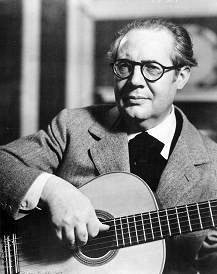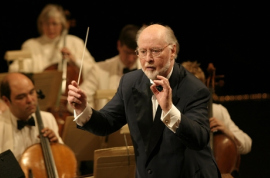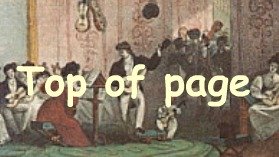The Biography of
Mario Castelnuovo-Tedesco
1895 – 1968
Born in Florence
Mario Castelnuovo-Tedesco was born in Florence in 1895, into a prominent banking family that had existed in the city since the expulsion over the Jews from Spain in 1492. His mother introduced him to the piano while a child, and he composed his first pieces at nine years of age. Ten years later he had completed a degree in piano, and began studying under the renowned composer Ildebrando Pizzetti from whom he received a diploma in composition in 1918. At this time the blossoming artist was successful as a pianist performing as soloist, accompanist and chamber musician. The composer and pianist Alfredo Casella began including Castelnuovo-Tedesco's work in his repertoire and ensured that he was represented in the repertoires of the Societe Nazionale di Musica (later the Coporazione delle Nuove Musiche). This exposed him to a much wider European audience and he featured in the first festival of the international society of contemporary music, held in Salzburg, Austria, in 1922.
Ten years later he had completed a degree in piano, and began studying under the renowned composer Ildebrando Pizzetti from whom he received a diploma in composition in 1918. At this time the blossoming artist was successful as a pianist performing as soloist, accompanist and chamber musician. The composer and pianist Alfredo Casella began including Castelnuovo-Tedesco's work in his repertoire and ensured that he was represented in the repertoires of the Societe Nazionale di Musica (later the Coporazione delle Nuove Musiche). This exposed him to a much wider European audience and he featured in the first festival of the international society of contemporary music, held in Salzburg, Austria, in 1922.

his Conecerto no.1
for guitar after meeting
Andres Segovia in 1932
In 1926 an opera based on a play by Niccoló Machievelli, La Mandragora was premiered. Castelnuovo-Tedesco wrote many works inspired by great literature, of which this was the first. These included interpretations of works by Aeschylus, Virgil, John Keats, William Wordsworth, Walt Whitman, Frederico García Lorca, William Shakespeare, as well as the Bible and Jewish liturgy. His expression of pride in his Jewish origins, or as he described them the "splendor of past days", included his violin concerto no.2 (1931) written at the request of Jascha Heifetz.
Mario Castelnuovo Tedesco's Fuga
Elegiaca performed by
Duo 220 - Andrew Stroud
and Adam Larison
Tedesco and Segovia
Mario Castelnuovo-Tedesco met the Spanish guitarist Andrés Segovia at the 1932 festival of the International Society of Contemporary Music, held in Venice, Italy. this meeting inspired the composer to write his guitar concerto no.1. He went on to compose almost 100 compositions for the guitar, and earn the reputation as one of the foremost twentieth century composers for that instrument.
Hollywood composers sought
Castelnuovo-Tedesco's tuition
Mario Castelnuovo-Tedesco's Fantasia
op.145 performed by Vladimir Gapontsev (guitar)
and Evgeniya Rodzina (piano)
Life in Hollywood
There the violinist Jascha Heifetz helped him secure a contract with the film studio Metro-Goldwyn-Mayer in Hollywood, working as a film composer of course. Working for that and other studios he contributed on some 200 film scores over the next fifteen years. In 1948 working with Rita Hayworth and her Beckworth Productions he wrote the music for the film The Loves of Carmen. He however still found the time to write concert music, as well as composing new operas based on American poetry. Now a mature musician in his forties, he was a sought-after as a composition teacher in Los Angeles, with John Williams, Henry Mancini and André Previn counted as his pupils. With the latter commenting that 'pupil of Castelnuovo-Tedesco' was virtually a requirement for young composers to be accepted at the studios. He was a valued friend for many : his cataloguer Nick Rossi commented "Mario Castelnuovo-Tedesco was not only the kindest and most generous person I've ever known, he was also the most brilliant". He died in Beverly hills at the age of 72. Mario Castelnuovo-Tedesco's
Capriccio diabolico performed
by
Matthias Lang
Other Modern guitar composers :
- Leo Brouwer
- Antonio Lauro
- Manuel de Falla
- Mario Castelnuovo-Tedesco
- Manuel Ponce
- Emilio Pujol
- Andrés Segovia
- Frederico Moreno Torroba
- Heitor Villa-Lobos
|
|
Castelnuovo-Tedesco'sViolin |






